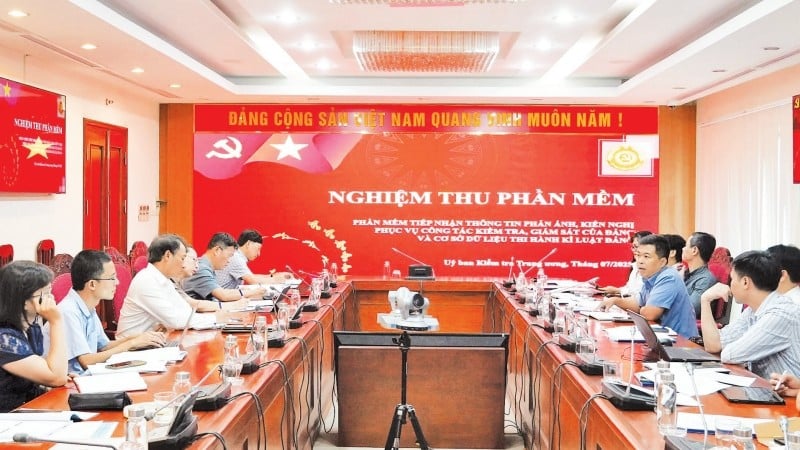
In which, the fight against corruption, waste and negativity does not hinder but accompanies and promotes sustainable development.
This shift demonstrates modern state management thinking, closely linking the building of a clean political system with dynamic economic development, promoting the private economy to truly become the most important driving force of the national economy.
Perfecting institutions to protect and open up pathways
From the reality of the abnormal relationships between officials and party members with positions and power and private enterprises for personal gain, experts believe that these are essentially corrupt relationships, even complicity as General Secretary To Lam commented. These relationships have a negative impact on Party building work, reduce the effectiveness of state management; distort the investment environment; and demonstrate the moral degradation of both officials and enterprises.
After the “secret handshake” behavior, there is an unhealthy business environment, unequal competition, and the policies of the Party and the State are deviated. Instead of policies and guidelines issued to serve the majority of the people, many documents are only aimed at serving a group of subjects, disrupting the market and losing the confidence of genuine investors.
If business is based on non-transparent relationships and does not comply with the law, it always carries risks and reduces the country's reputation when participating in the world market.
In a broader view, if business relies on relationships that lack transparency and do not comply with the law, there will always be risks, reducing the country's reputation when participating in the world market. Therefore, the work of fighting against corruption, waste, and negativity is directed towards a humanistic and legal perspective, not only to punish, but also to educate, reform, protect and pave the way for goodness - as directed by the General Secretary.
Resolution No. 68-NQ/TW dated May 4, 2025 of the Politburo on private economic development with new and groundbreaking perspectives, demonstrates a strong change in awareness and thinking about the role of the private economy. The Resolution commits to fully ensuring property ownership rights, freedom of business, creating a fair playing field where private enterprises can develop based on capacity and healthy competition.
Groups of solutions and tasks to ensure the private economy has equal access to business opportunities and economic resources, especially capital, land, technology, human resources, data, etc. according to the provisions of law. With the viewpoint of strengthening the leadership role of the Party, the creation role of the State, taking enterprises as the center and subject, the Resolution aims to eliminate the mindset of "if you can't manage, then ban", establishing the role of creating, serving and accompanying the development of enterprises; creating and strengthening trust between the State and the private economic sector.
Together with Resolution No. 68-NQ/TW, Resolutions No. 66-NQ/TW on law making and enforcement; No. 57-NQ/TW on breakthroughs in science and technology development and digital transformation; No. 59-NQ/TW on international integration are strategic decisions for the country to enter an era of prosperous and powerful development, in which the role of the private economy is identified.
To ensure effective implementation of policies, the Party and State have promoted the construction and improvement of institutions to keep up with socio-economic development to an unprecedented level, aiming to overcome loopholes, obstacles and inadequacies in mechanisms, policies and laws, especially in the fields of bidding, auction, appraisal, valuation, management and use of land, public assets, finance, etc.
According to the Central Steering Committee on Institutional and Legal Improvement, after more than 3 months of implementing Resolution No. 66-NQ/TW, the Government Party Committee and Party Committees of ministries and branches have completed a large amount of work, which is quite complicated in nature, and proposed solutions to remove difficulties and obstacles caused by legal regulations. The discovered bottlenecks were handled immediately, not hindering development and freeing up resources.
The Steering Committee proposed to add 25/47 laws to the National Assembly's 2025 Legislative Program to immediately resolve problems related to the law; requested the Government Party Committee to direct the continued completion of the review results, ensuring accurate determination of solutions to handle 834 difficulties and problems out of a total of 2,092 petitions and reflections collected and received.
Transparency and control of power
Transparency and power control play a key role in ensuring harmony between preventing corruption, waste, and negativity and promoting development, especially in implementing regulations and handling political responsibilities of leaders.
During the 13th term, the authorities have initiated investigations into many particularly serious cases occurring in the non-state sector such as SCB bank, Van Thinh Phat group; Phuc Son; Thuan An, etc. In connection with the cases, many officials who are heads of ministries, branches, localities, and units were subject to party discipline, administrative discipline, and criminal prosecution.
In some localities, both the former provincial party secretary and the former provincial people's committee chairman were prosecuted for criminal liability, such as in Lam Dong (old), Bac Ninh (old), Vinh Phuc (old), etc. This situation shows that when power is not tightly controlled, the risk of abuse of power, group interests, and power degeneration is inevitable.
According to the leader of the Central Internal Affairs Committee, strictly implementing the principle that all power must be strictly controlled by mechanisms, bound by responsibilities, where power comes, there must be responsibilities, whoever abuses power for personal gain must be prosecuted and punished for violations, during the 13th term, the Committee advised on the issuance of five regulations of the Politburo on controlling power, preventing corruption, waste, and negativity in personnel work; inspection and supervision work; law-making work; in the management and use of public finance and assets and in inspection, auditing, investigation, prosecution, trial, and execution of sentences.
The five regulations contribute to perfecting a relatively complete institutional system on power control to closely control and monitor the exercise of power by agencies, organizations, and people with positions and powers; ensuring that all power must be operated publicly, transparently, and correctly.
Arranging cadres to hold leadership positions who are not local people is a strongly directed policy, both promoting socio-economic development and contributing to preventing "localism", "cliques", "group interests" and fighting corruption, waste and negativity in the local government apparatus.
Perfecting institutions and laws is an urgent requirement, laying the basic legal foundation for all activities, including the work of preventing corruption, waste and negativity in the private economic sector.
The results of the organization of party congresses in 34 provinces and cities show that the target of arranging provincial-level party secretaries who are not local people has been achieved 100%; 18/34 provincial-level inspection committee chairmen and 2,905/3,321 commune-level inspection committee chairmen are not local people. On October 31, 2025, in Conclusion No. 201-KL/TW on the situation and results of the work of party congresses directly under the Central Committee, the Politburo requested to continue implementing the policy of arranging 100% of the positions of chairmen of people's committees, chairmen of inspection committees, and provincial chief inspectors who are not local people, to be completed before December 15, 2025.
Perfecting institutions and laws is an urgent requirement, laying the basic legal foundation for all activities, including the work of preventing corruption, waste and negativity in the private economic sector. However, all legal institutions are not a "master key" without self-discipline and daily practice.
Accompanying and creating development in the new period, building a culture of integrity must become the inherent need of each organization and individual, in the entire political system and the business and entrepreneur community, with the core motto of action under the direction of the General Secretary: "Discipline comes first - resources come together - results are the measure", together ensuring sustainable economic development of Vietnam and international integration.
>> Lesson 1: Identifying signs and violations
>> Lesson 2: Shifting focus to proactive and preventive
Source: https://nhandan.vn/bai-3-dong-hanh-de-thuc-day-phat-trien-ben-vung-post919755.html


![[Photo] Prime Minister Pham Minh Chinh chairs the second meeting of the Steering Committee on private economic development.](https://vphoto.vietnam.vn/thumb/1200x675/vietnam/resource/IMAGE/2025/11/01/1762006716873_dsc-9145-jpg.webp)





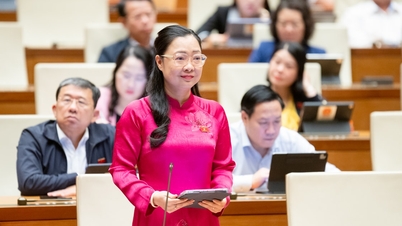

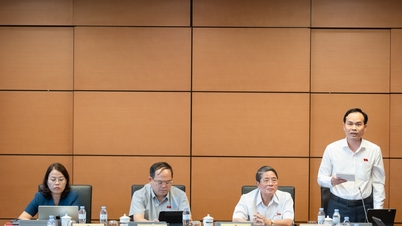
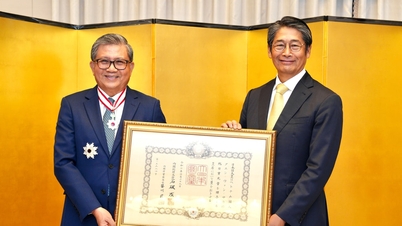
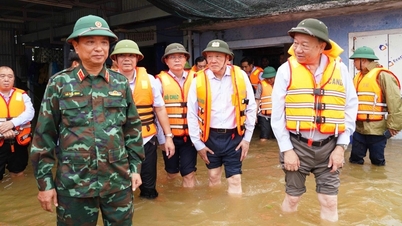

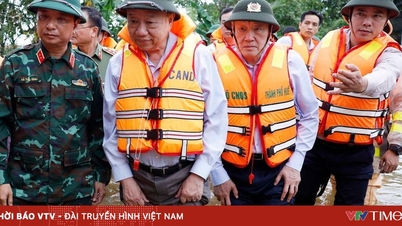

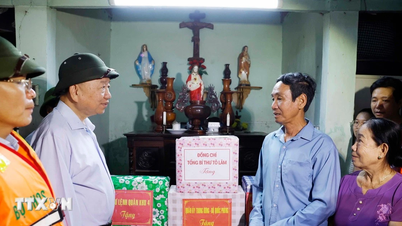





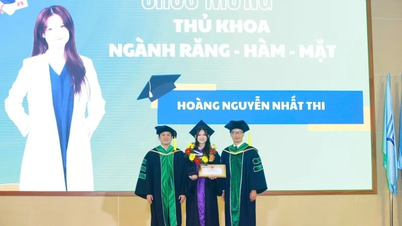

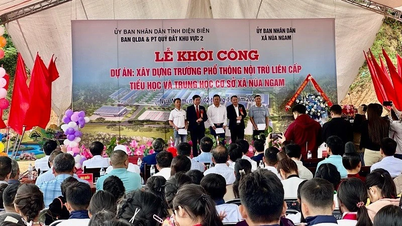

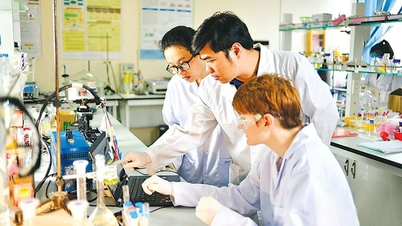




































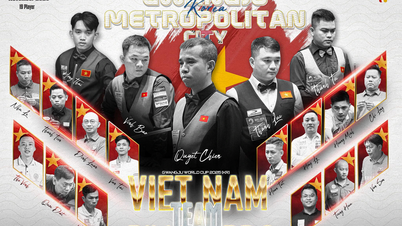

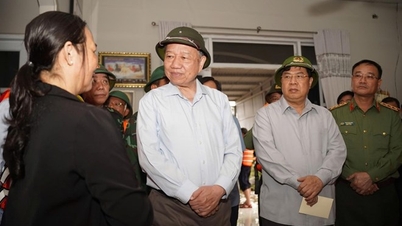


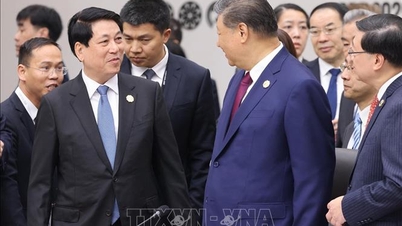

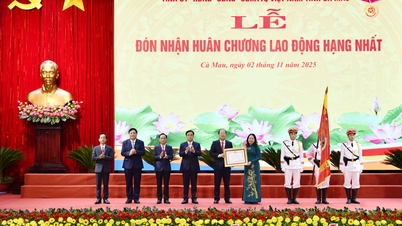



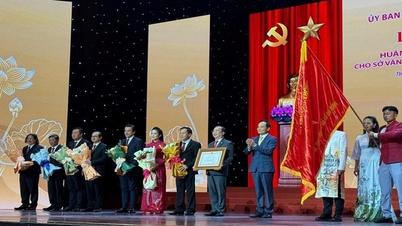

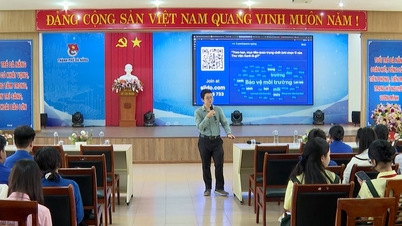

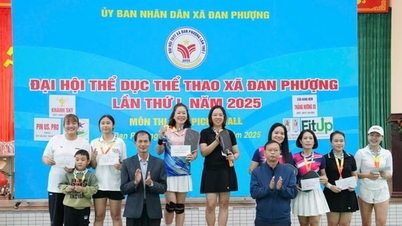

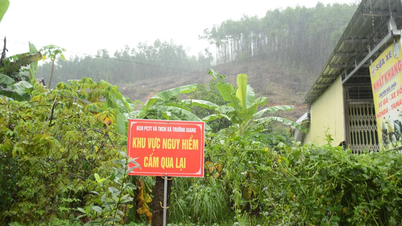


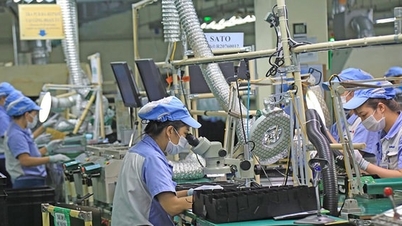















Comment (0)